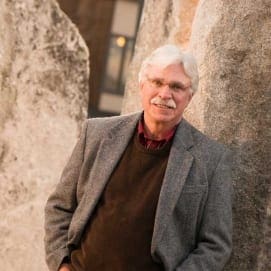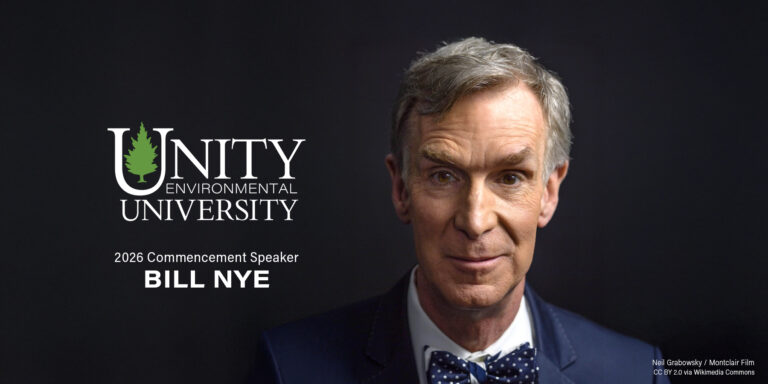
“Dr. Mulkey’s leadership role in delivering symposia at the ESA annual meeting shows that the curriculum he’s helped transform at Unity College is leading the way when it comes to sustainability science and educating the next generation of environmental leaders,” Executive Vice President and Chief Academic Officer Dr. Melik Peter Khoury said.
At the meeting, Mulkey will co-present “Curriculum Reform for Sustainability in the Environmental Century” based on a paper he co-authored in the most recent edition of the peer-reviewed Journal of Environmental Studies and Sciences.
In that paper, “Interdisciplinary Environmental and Sustainability Education: Islands of Progress in a Sea of Dysfunction” Mulkey helps outline how, despite the urgent need for interdisciplinary
environmental and sustainability education reform to solve critical environmental and sustainability challenges, the majority of such programs have limited resources and unequal standing relative to traditional U.S. college disciplines.
“Traditional disciplinary departments, which dominate university structures and were created decades before most IES programs, often have a monopolistic grip on hiring, firing, and the tenure-granting process,” Mulkey wrote with co-authors Shirley Vincent of the National Council for Science and the Environment and J. Timmons Roberts of the Institute at Brown University for Environment and Society and Department of Sociology.
“We argue universities must structurally reform to support IES programs … and strongly support initiatives to more effectively support the integration of IES knowledge across all higher education curricula,” Mulkey writes in the paper.
The authors recommend such specific reforms as:
- Fully integrated IES (interdisciplinary environmental and sustainability) programs should have authority over staffing and resources and recognized status as an autonomous unit within the university.
- IES units should have their own core faculty lines in sufficient numbers and ranks to ensure effectiveness to meet their mission. Tenure-track positions are required.
- University budgets should explicitly allocate base funding for IES programs sufficient to ensure continuity.
- IES leadership and staff should be adequate to ensure innovation and development.
- Affiliated or jointly appointed faculty that participate in IES programs should have formalized tenure and promotion criteria that recognizes the importance and value of their interdisciplinary research, IES teaching, service, and outreach activities.
- Clear guidelines for retention, tenure, and promotion should be developed for all faculty who participate in IES programs.
“This is not vocational work,” Mulkey writes, “it is a highly sophisticated management of human and ecological systems and of material and energy flows through extremely complex systems. Students need skills that have been drawn from the full array of disciplines necessary to address environmental and sustainability problems.”
The conference marks the 100th anniversary of the Ecological Society of America, the world’s largest professional organization of ecological scientists, representing 10,000 researchers, educators, natural-resource managers and students in North America and 90 countries. Mulkey has been an ESA member since 1977.
President Obama addressed the conference on Aug. 10 via video message, viewable here.
Here is a link to the conference program. Mulkey’s session summary is viewable here.
“It is an honor for Unity College to be represented by invitation at this conference,” Mulkey said. “It underscores our growing national presence and the importance of being at these events.”



